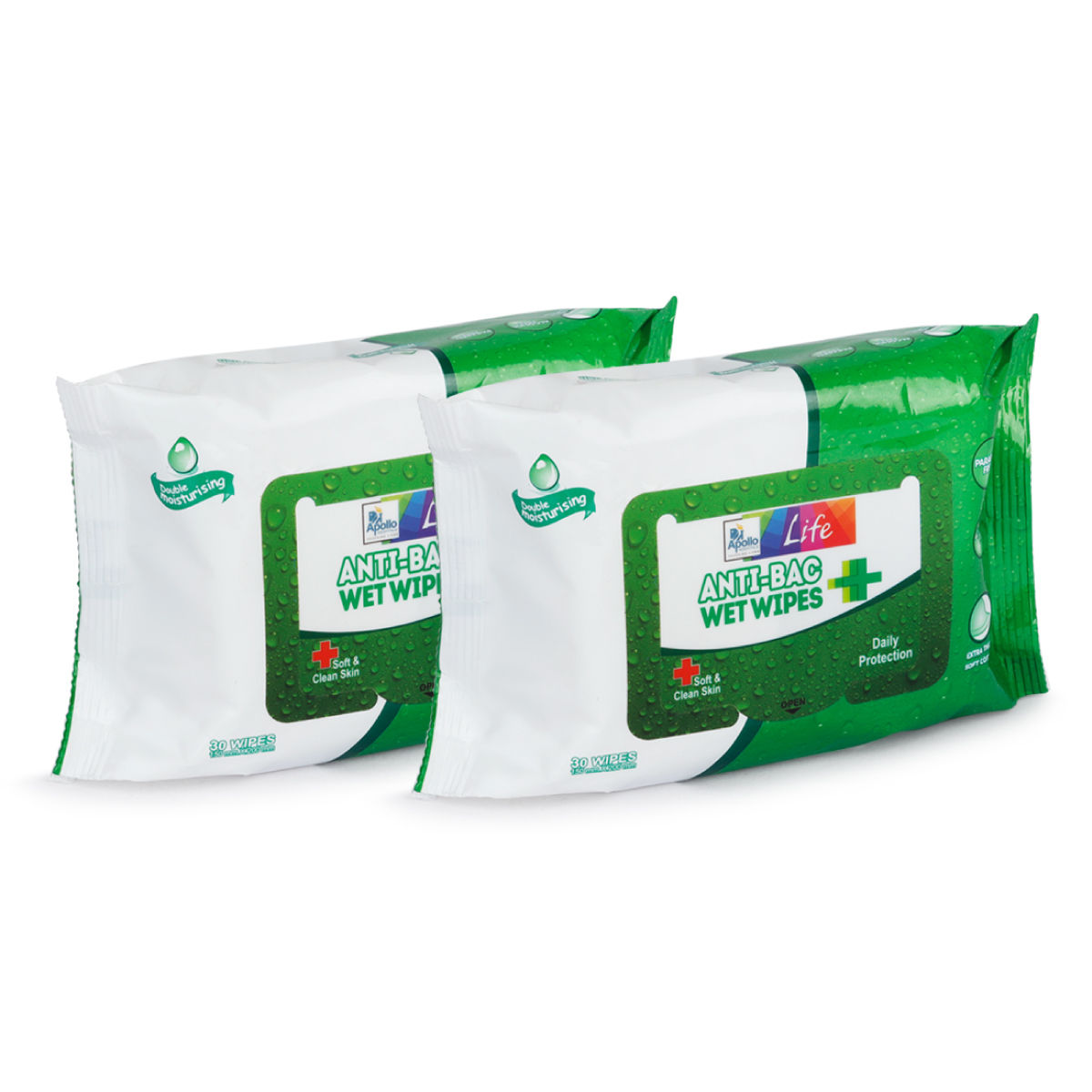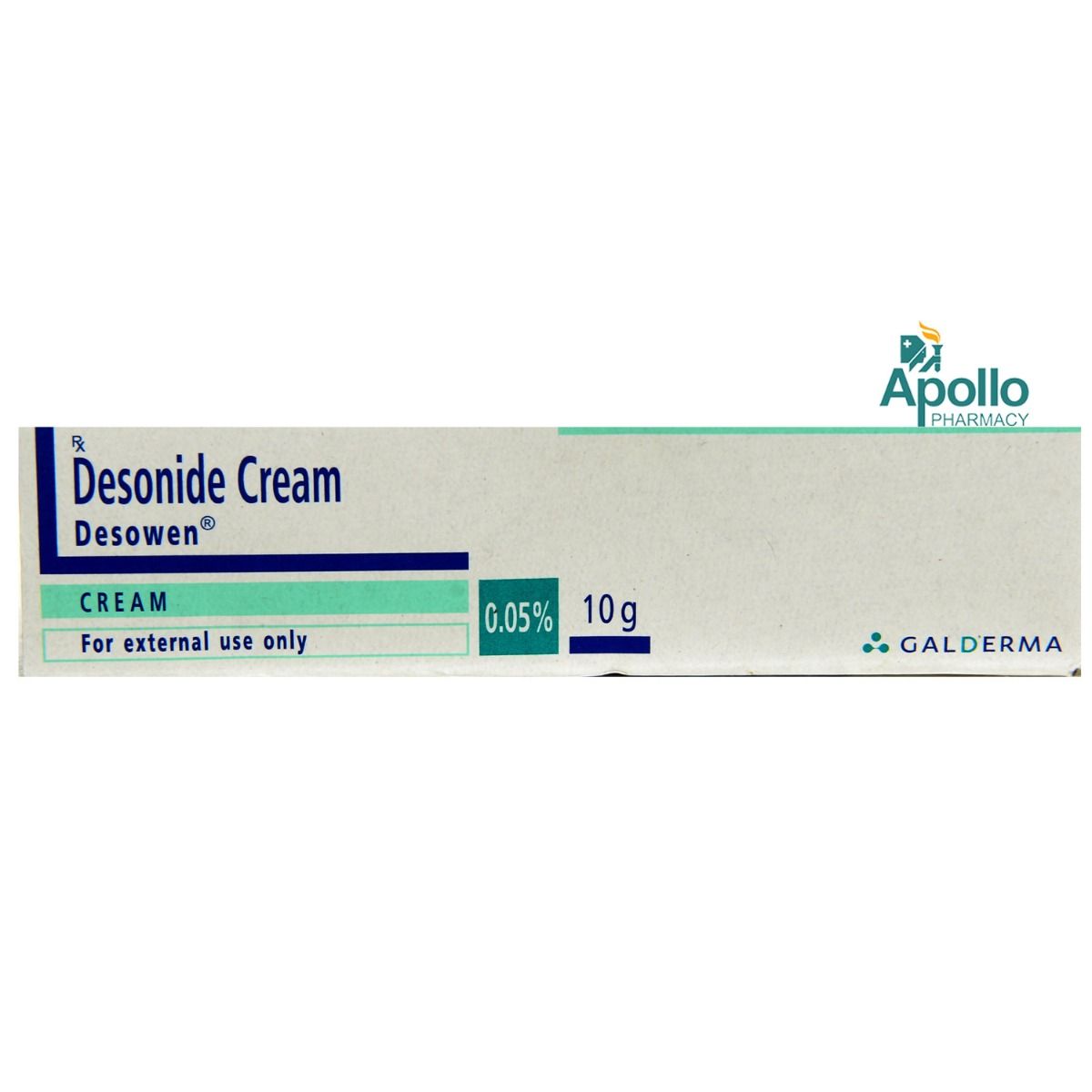Atonide Cream 20 gm
₹207*
MRP ₹230
10% off
₹195.5*
MRP ₹230
15% CB
₹34.5 cashback(15%)
Free Delivery
With Circle membership
(Inclusive of all Taxes)
This offer price is valid on orders above ₹800. Apply coupon PHARMA10/PHARMA18 (excluding restricted items)
Know Your Delivery Time
Provide Delivery Location


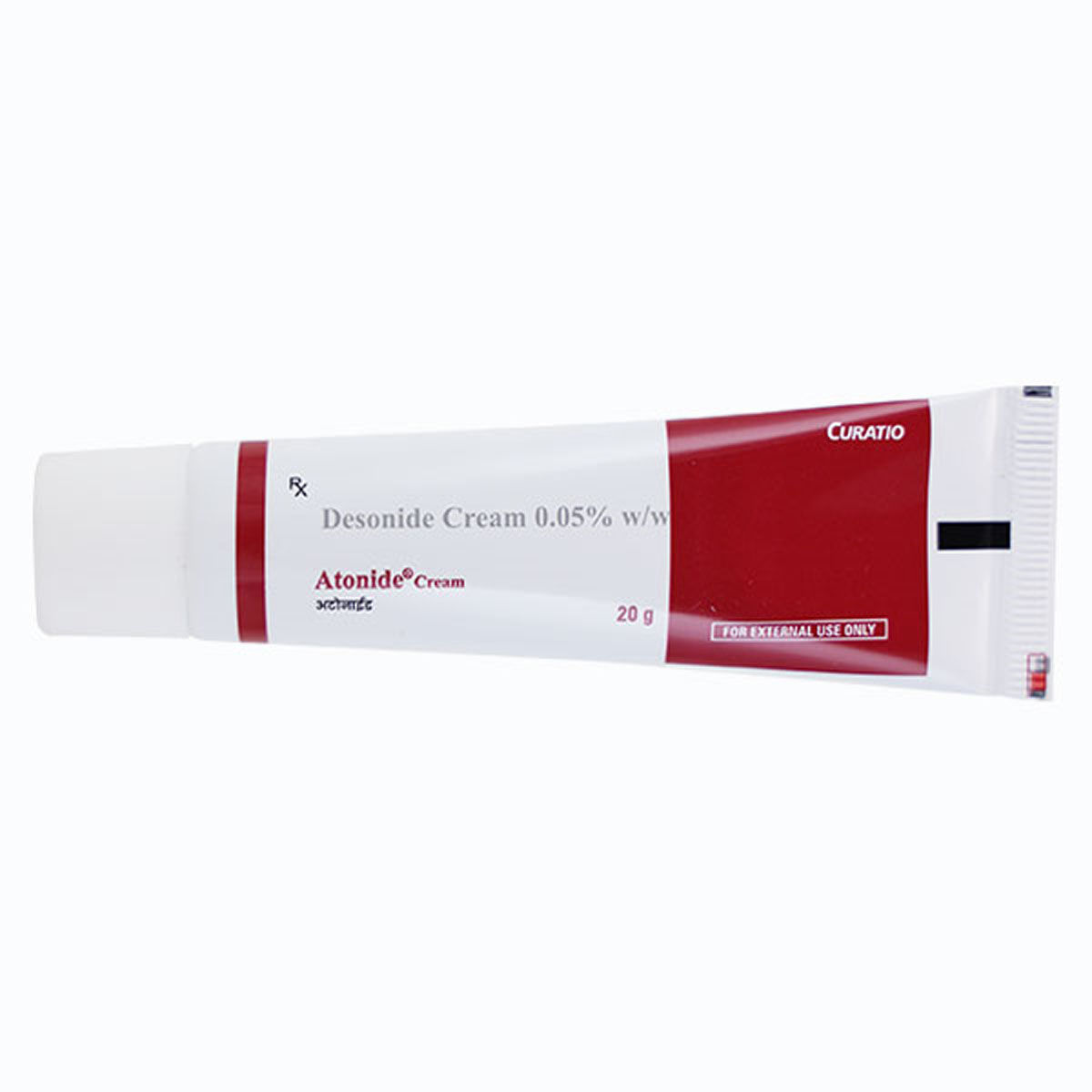
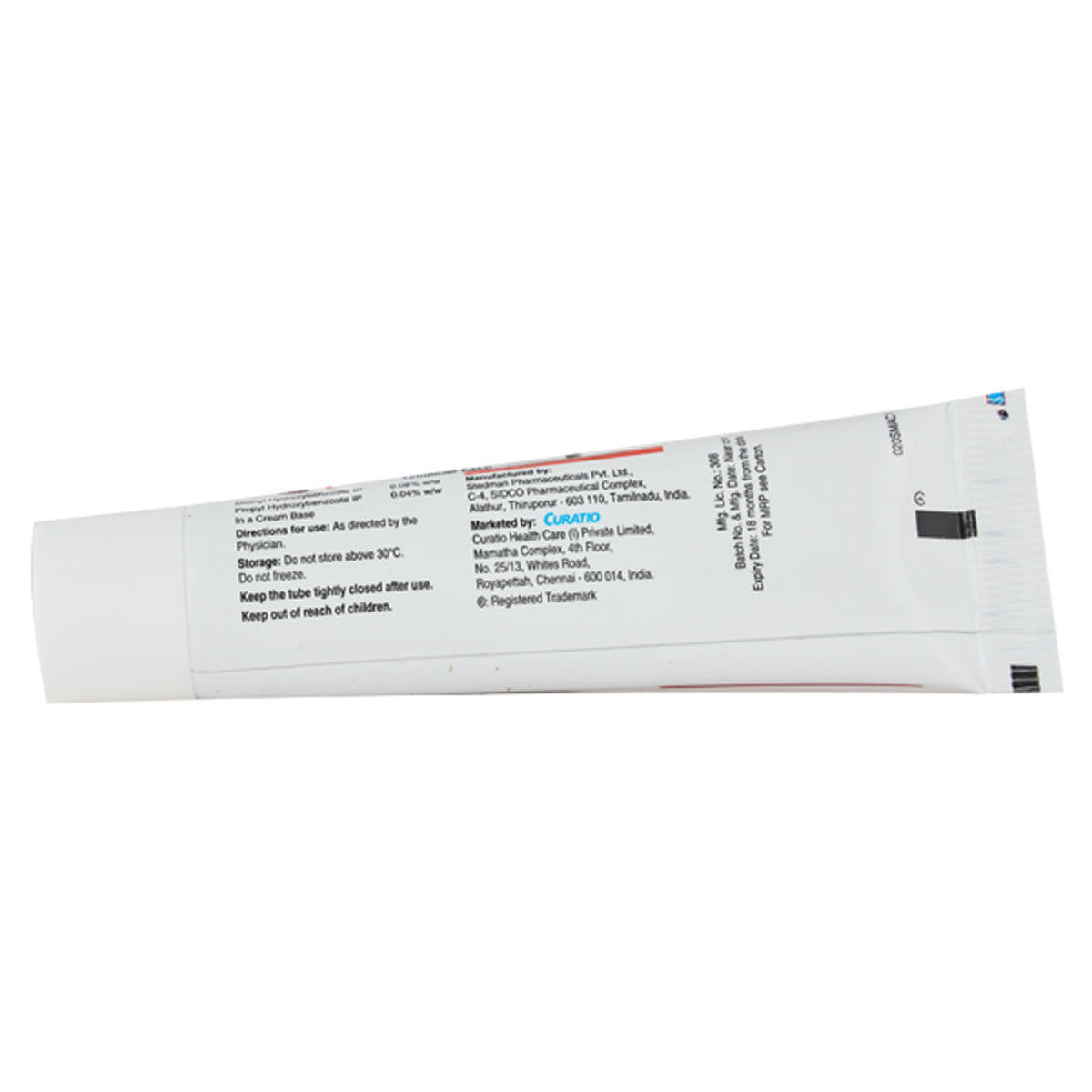
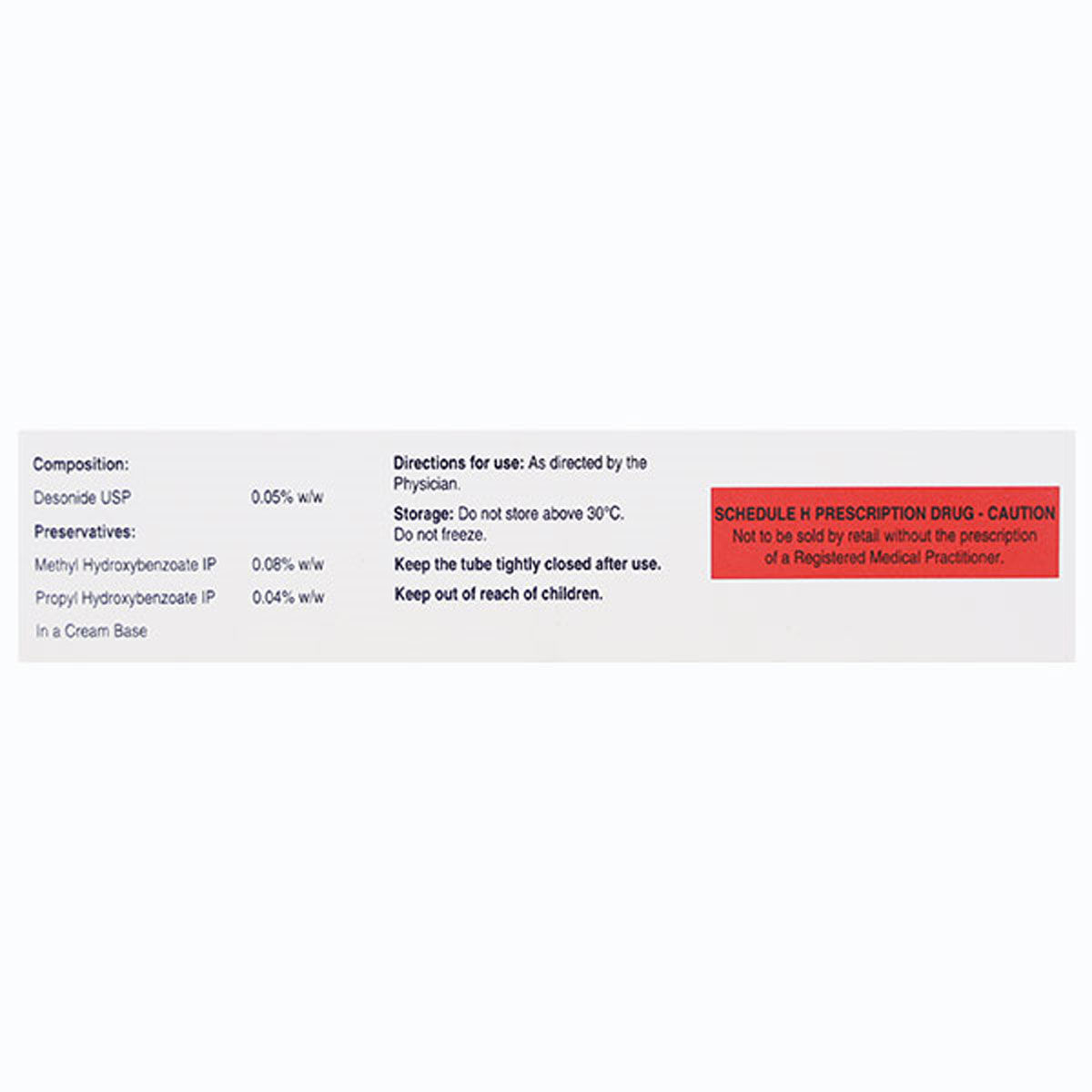
Whats That

Secure Payment

India's Most Trusted Pharmacy

Genuine Products
Composition :
Manufacturer/Marketer :
Consume Type :
Return Policy :
Expires on or after :
About Atonide Cream
Atonide Cream is used to treat skin problems such as redness, itching and swelling. It is generally prescribed for mild to moderate atopic dermatitis (eczema), seborrheic dermatitis, and contact dermatitis.
Atonide Cream contains 'Desonide' that works by blocking the production of certain chemical substances in the body which cause allergy and inflammation (swelling and redness). Thereby, Atonide Cream helps to treat redness, itching, irritation, and inflammation.
In some cases, Atonide Cream may cause common side effects such as skin peeling, dryness, burning sensation, irritation, stinging sensation, itching and redness at the site of application. Most of these side effects do not require medical attention and will resolve gradually over time. However, you are advised to talk to your doctor if you experience these side effects persistently.
Do not use Atonide Cream for more than 4 weeks unless prescribed by a doctor. Do not use Atonide Cream if you have a skin reaction or irritation to any steroid medicine. Consult your doctor before using Atonide Cream if you are pregnant or breastfeeding. Do not apply Atonide Cream on the chest if you are breastfeeding. Atonide Cream is not recommended for children below 3 months of age as efficacy and safety have not been established.
Uses of Atonide Cream
Medicinal Benefits
Atonide Cream belongs to the group of medicines called corticosteroids. Atonide Cream is used to treat mild to moderate atopic dermatitis (eczema), seborrheic dermatitis, contact dermatitis, skin rashes, skin irritation and skin inflammation. Atonide Cream works by blocking the production of certain chemical substances in the body that cause allergies and inflammation (swelling and redness). Thereby, Atonide Cream helps to treat redness, itching, irritation, and inflammation.
Side Effects of Atonide Cream
- Skin peeling
- Dryness
- Burning sensation
- Irritation
- Stinging sensation
- Itching
- Redness
Directions for Use
Storage
Drug Warnings
Hormonal changes were reported if Atonide Cream is used regularly and at very high doses. It can alter adrenal glands (glands that make hormones) and can cause Cushing’s syndrome. Symptoms include a round puffy face, weight gain, hump on the back, and pink/purple stretch marks on the stomach, tiredness, muscle weakness, and weight loss. Besides this, Atonide Cream may also cause symptoms of skin irritations like skin rash, itchy skin, swelling, blisters, and irritation. Contact your doctor if you notice these symptoms. Do not use Atonide Cream if you are allergic to any of its components or any other topical steroids. If your skin condition does not improve even after four weeks consult your doctor. Talk to your doctor if you have heart, kidney or liver problems. Consult your doctor before using Atonide Cream if you are pregnant or breastfeeding. Do not apply Atonide Cream on the breast or nipple if you are breastfeeding. Atonide Cream is not recommended for children below three months of age as efficacy and safety have not been established.
Therapeutic Class
Drug-Drug Interactions
Drug-Food Interactions
Diet & Lifestyle Advise
Eat foods rich in quercetin (a flavonoid) such as apples, cherries, broccoli, spinach and blueberries.
Consuming food rich in probiotics helps develop the immune system against allergies.
Limit intake of food that might trigger allergies, such as dairy products, soy, eggs, and nuts.
Avoid consumption of foods with excess sugar as it may flare up inflammation.
Include fruits, vegetables, whole grains, healthy fats and fish in your diet.
Reducing stress and maintaining a good sleep cycle would be helpful.
Avoid getting in contact with harsh soaps, detergents and rough fabrics.
Habit Forming
How Atonide Cream Works
What if I have taken an overdose of Atonide Cream
Alcohol
Caution
It is not known whether Atonide Cream interacts with alcohol. Please consult your doctor.
Pregnancy
Caution
Atonide Cream is a Pregnancy Category C medicine. There are no adequate studies on the effect of Atonide Cream on pregnancy. Hence, please consult your doctor if you have any concerns regarding this; your doctor will prescribe only if the benefits outweigh the risks.
Breast Feeding
Caution
Do not apply Atonide Cream on the breast or nipple if you are a nursing mother. Please consult your doctor if you have any concerns regarding this, your doctor will decide whether Atonide Cream can be used by breastfeeding mothers or not.
Driving
Safe if prescribed
Atonide Cream does not affect driving.
Liver
Caution
Please consult your doctor if you have any concerns regarding usage of Atonide Cream in patients with liver impairment.
Kidney
Caution
Please consult your doctor if you have any concerns regarding usage of Atonide Cream in patients with kidney impairment.
Children
Safe if prescribed
Atonide Cream is safe to use in children if prescribed by the doctor. However, Atonide Cream should not be used in children below three months.
Country of origin
Manufacturer/Marketer address
Author Details
We provide you with authentic, trustworthy and relevant information
FAQs
Disclaimer
Customers Also Bought
Product Substitutes








